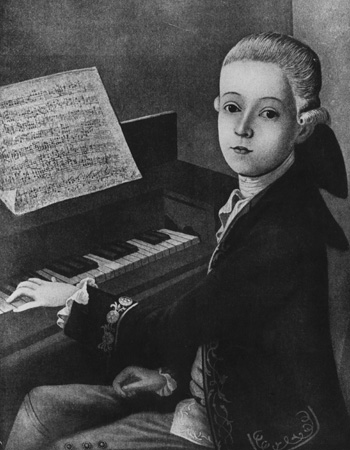2016 marks the 260th anniversary of the birth of Wolfgang Amadeus Mozart (January 27, 1756 – December 5, 1791), and any music lover understands the lasting effect the young genius left on the world. Not only did he produce an insane amount, opens a new window of music in his 35 year life, but he changed the way people hear it.
What we think we know about Mozart is not always right. Let's take this movie (originally a play), for example:
Peter Shaffer is a brilliant dramatist. He has written several plays, some of which (like Amadeus) were later made into films, while others continue to come back into revival. But as a dramatist, there was one thing that was required of the works that he wrote: drama.
The film Amadeus (which we'll work from here because I have not seen or read the play) revolves around the end of Mozart's life and—potentially—what led to his death. There is reference to the opera Don Giovanni being Mozart's therapeutic way of dealing with his daddy issues, and one of his happier operas having "too many notes" according to the Austrian emperor. The centerpiece of it all, though, is about Mozart's composition, with the assistance of Antonio Salieri, of his Requiem, believing he was writing his own requiem mass.
The concept of Amadeus, which itself perpetuates an idea developed by Alexander Pushkin, opens a new window, is based almost completely on fiction; Mozart and Salieri were contemporaries and knew each other, but Salieri had nothing to do with Mozart's last works. In real life, the completion of the Requiem, which was not finished by Mozart's death, was probably done by Mozart's copyist and possible student, Franz Xaver Süssmayr.
If you're looking for a good, quick rundown of Mozart's life, try Paul Johnson's biography on for size. The text is less than 200 pages, and the audiobook takes less than a workday to hear all the way through. I will warn you, though: this man loves Mozart. LOVES him. Johnson is good with words, but you might suffer from a bit of drifting during long lists of various K. number number numbers that Mozart might have done in a year, or that include the clarinet, or were particularly loved by a prince or family member. But if you're just interested in the true story, this is where you can start.
If you'd like a more cultural studies look at Mozart, conductor Jane Glover has an interesting perspective on Mozart, his relationship with women, and how that might be reflected in his work. It's not quite a tome, but it's definitely heavier reading than the other.
These are just two of several takes on Mozart's life, opens a new window.
And if you'd rather read some fiction, there are plenty of novels that feature Mozart, opens a new window.
If you're not in a reading mood, there are other ways to experience the works:
Watch the operas, opens a new window.
Get the CDs, opens a new window.
See what's on Freegal, opens a new window.
The work of Mozart is still performed today. His operas are on constant rotation, his choral masterworks (including the famous Requiem) are produced by professional and dilettante groups around the world, and the name is recognizable enough to be featured in the title of an award-winning streaming series. He's not going anywhere, dudes.
It's Mozart's birthday! Let's celebrate!


